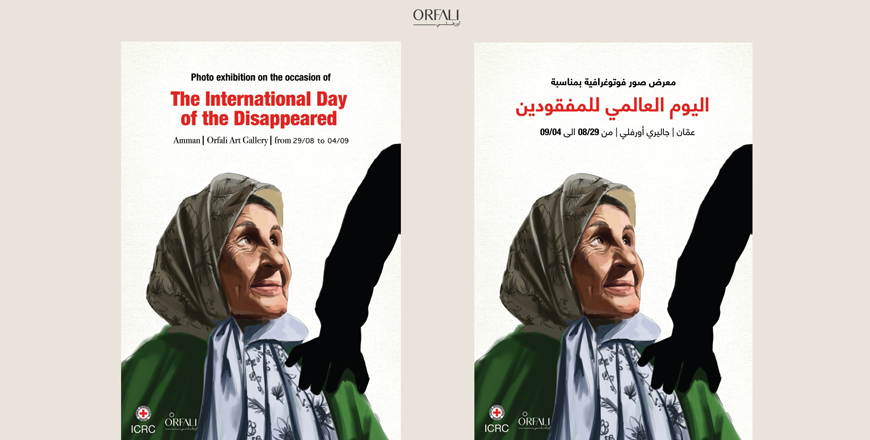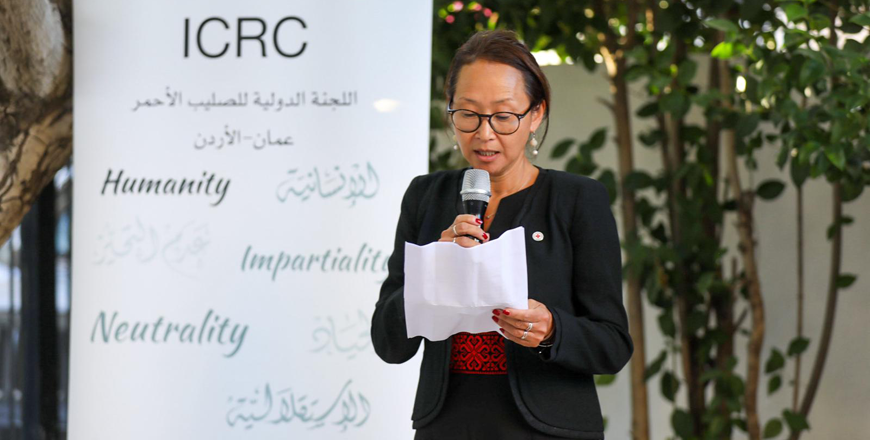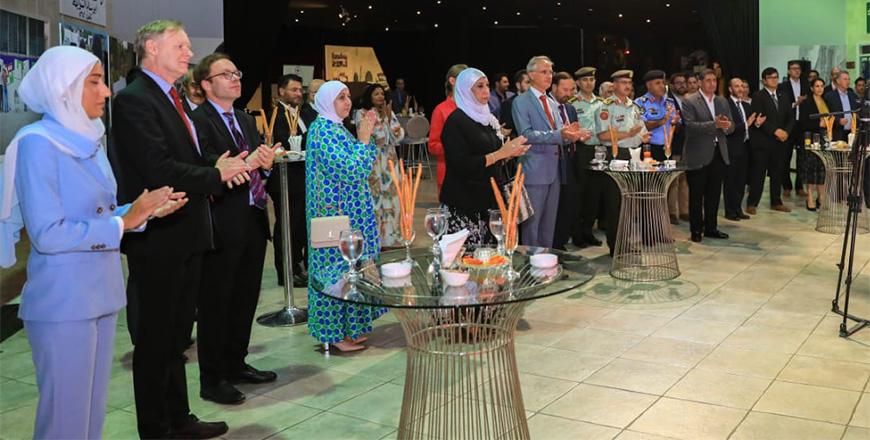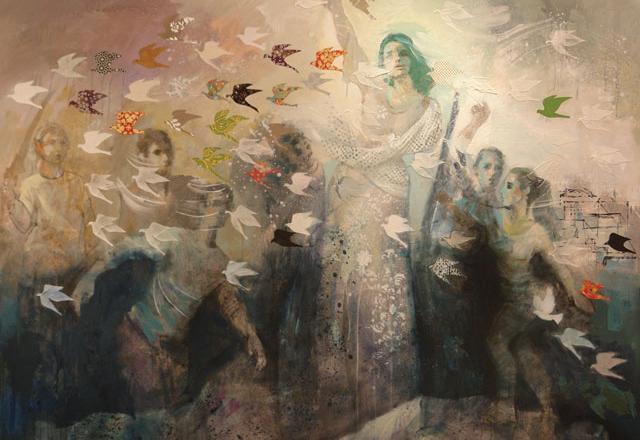You are here
Remembering the disappeared at Orfali Art Gallery
By Saeb Rawashdeh - Sep 04,2024 - Last updated at Sep 04,2024

AMMAN — Each disappeared person has their faith and story of how they disconnected from their loved ones and each military conflict has thousands of such fates. Some of their relatives, siblings, children and spouses spend decades in vain that they will reconnect with them while others cope with the loss and continue their life.
The difference between a missing person and a person who died in a conflict is that a person who has disappeared and whose status as alive or dead cannot be verified as their location and condition are unknown, and that a disappeared individual's status is pending.
A person may go missing through a voluntary disappearance, or else due to an accident, crime, death in a location where they cannot be found (such as at sea), or during wars. With passage of time, people lose a hope of reuniting with a missing family member or a friend.
Missing persons' cases remain unresolved for many decades in wars. Laws related to these cases are often complex since, in many jurisdictions, relatives and third parties may not deal with a person's assets until their death is considered proven by law and a formal death certificate issued.
The situation, uncertainties and lack of closure or a funeral resulting when a person goes missing may be extremely painful with long-lasting effects on family and friends.
Painful experiences of Syrian refugees residing in Jordan, who have family members missing, was a theme of the photo exhibition at Orfali Gallery in Amman. Thousands of Syrians are missing in a conflict that started in March 2011.
People whose portraits are displayed are ordinary Syrians, working class man and woman caught in the middle of a turmoil. Their families found a new home and new hope in Amman and they are trying to heal wounds opened by a brutal fratricide.
"The collaboration between Orfali Art Gallery and the International Red Cross for this exhibition was out of a shared commitment to highlighting critical humanitarian issues”, Sawsan Snober said, partner at the gallery and a daughter of Inaam Orfali, the gallery's founder in 1993.
"This exhibition raises awareness about the pressing concerns related to the International Day of Disappeared. Orfali Art Gallery has always been dedicated to raising awareness on important social matters on critical social issues through art,," Snober continued.
For the past 30 years, Orfali Art Gallery has become a vibrant cultural and artistic hub.
"The International Day of Disappeared is a significant occasion that brings to light the plight of countless individuals who have gone missing due to conflicts, disasters, or other crises," Snober continued, adding that It is a day of remembrance and a call to action, reminding us of the importance of advocacy, support for the affected families, and the need for continued efforts to resolve cases of the disappeared.
"It is our privilege at Orfali Art Gallery to take part of this day to amplify the voices of those who can no longer speak for themselves," Snober underscored.
One of the basic human rights of families is to know the fate and whereabouts of their missing relatives and it has been stipulated in international humanitarian law and international human rights law. Unfortunately, like in many instances, it remains a lip service.
The basic thing for the society as well as for the victims of the conflict is that the plight of families has been recognised.
“The feeling is scary, and the impact is heavy,” said one sister whose brother disappeared years ago in a Syrian civil war.
Related Articles
AMMAN — The International Committee of the Red Cross (ICRC) marked the International Day of the Disappeared, held each year on August 30th,
AMMAN — To express solidarity with the families of missing persons and to mark the International Day of the Victims of Enforced Disappearanc
Women — who suffer most in times of conflict — are predominant in Leila Kubba Kawash’s paintings exhibited at Orfali Art Gallery.

















